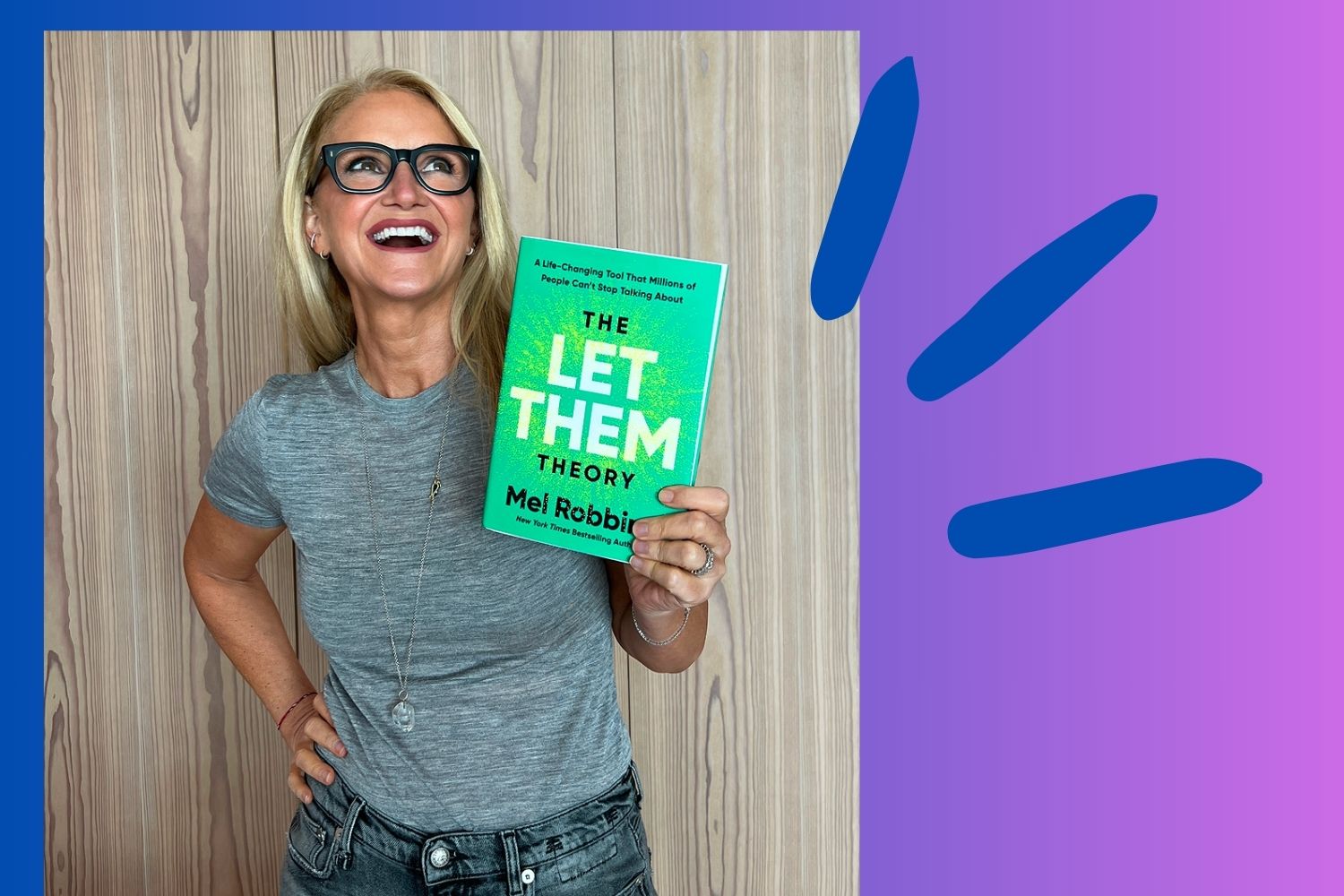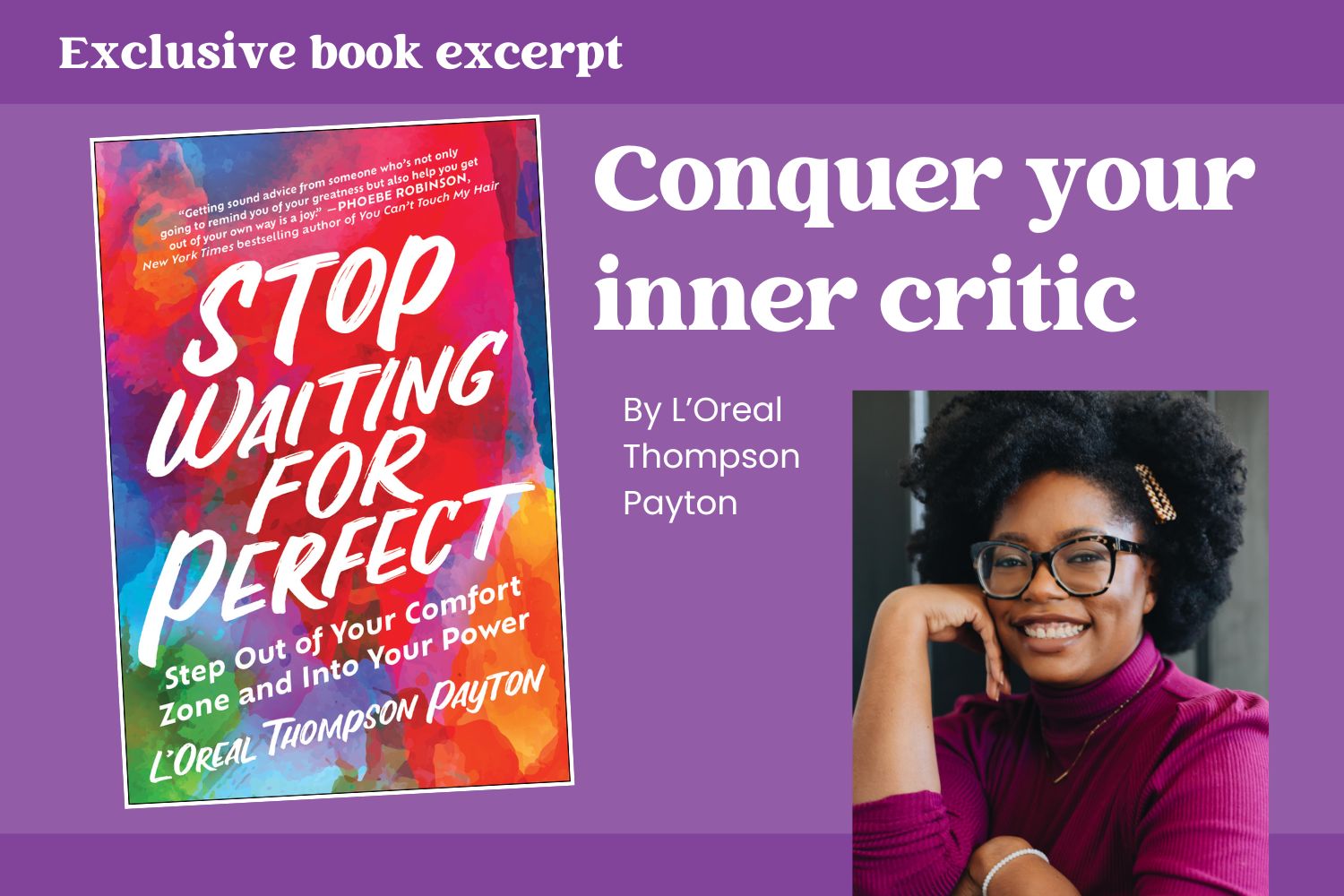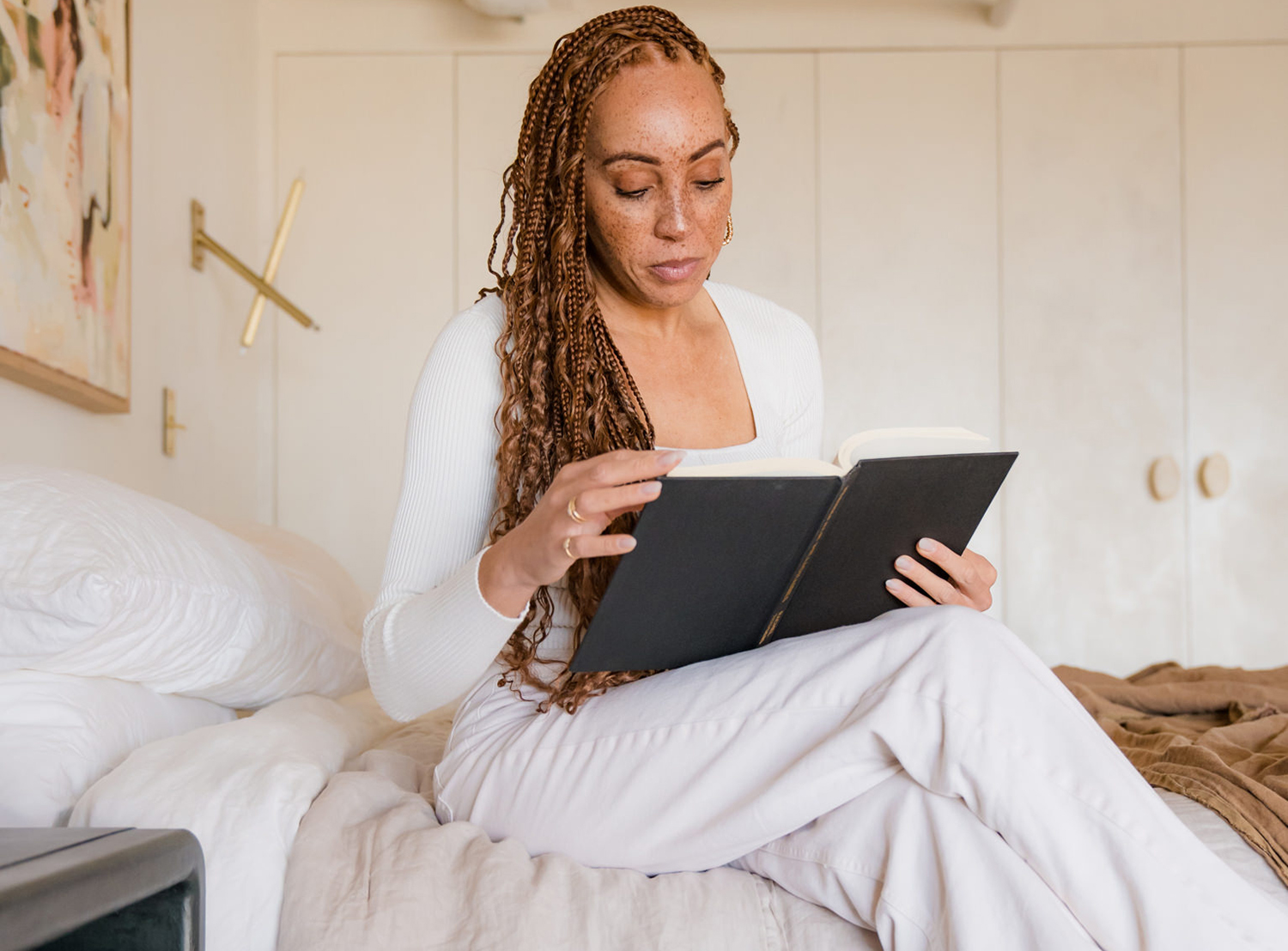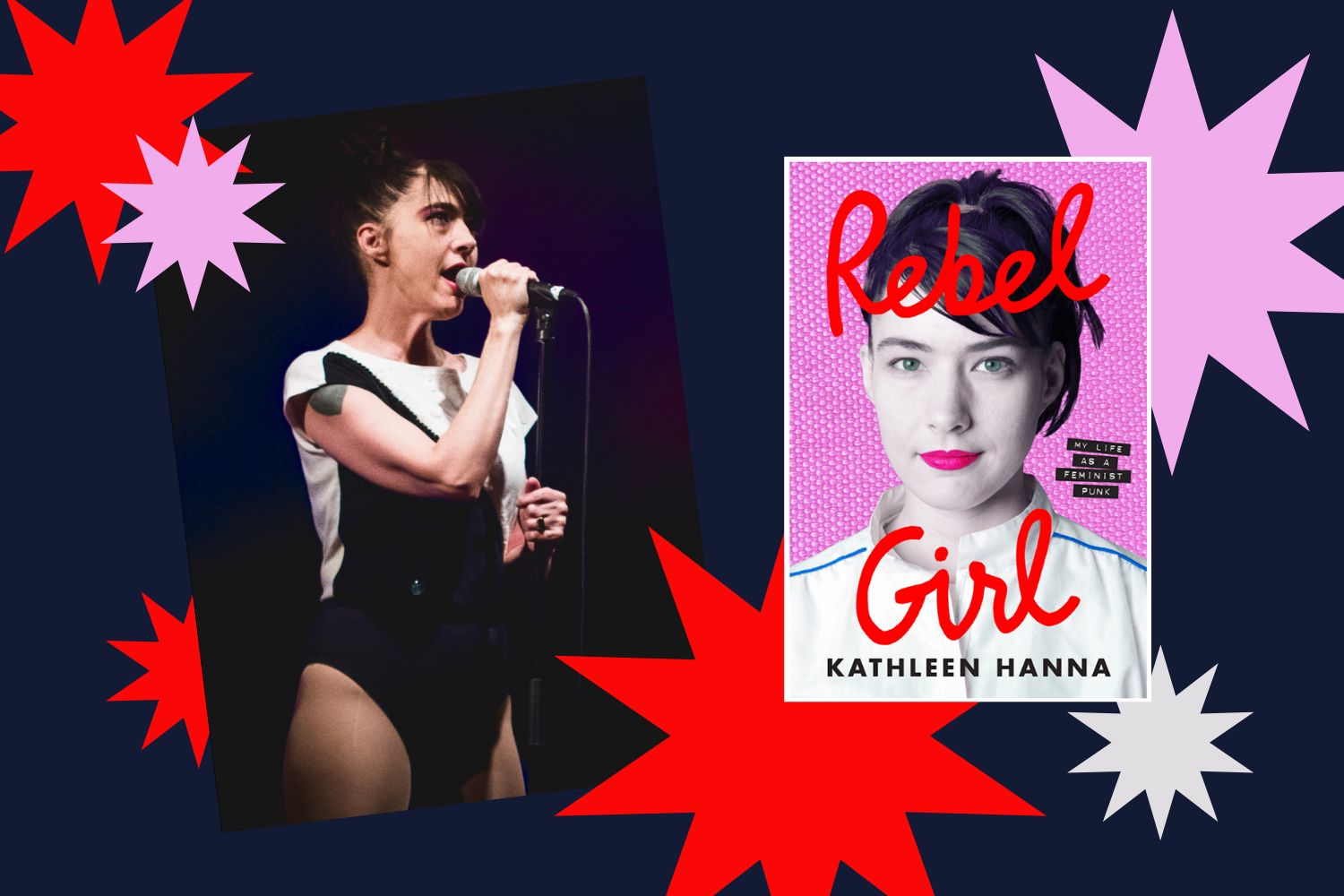
Double Dare Ya: Kathleen Hanna reflects on feminist life in ‘Rebel Girl’
In the black-and-white photo Kathleen Hanna is wearing a short plaid skirt, wailing into the microphone, and grabbing her crotch. I feel her voice emanating from the glossy page, “Hey girlfriend, I got a proposition that goes something like this, dare ya to do what you want, dare ya to be who you will…”
I was transfixed, terrified, and transformed by this image of Hanna’s band Bikini Kill in the Rolling Stone Book of Women in Rock. My mother had given me the book as a belated 16th birthday present in 1997 and I treated it like a bible. I looked to the women featured like rebel saints who could guide me out of an unsure adolescence in rural Maine and into a full-blown feminist future.
Kathleen Hanna topped my teenage feminist pantheon. Feminism, especially Riot Grrrl’s bratty, furious, and fearless variety, felt nebulous. My attempts at organizing my peers, playing music, and making zines felt small, a drop in the bucket against patriarchy, and so I looked to Kathleen Hanna for an answer, a template for a feminist life.
I was surprised when I started reading Hanna’s new memoir, Rebel Girl: My Life as a Feminist Punk, that Hanna often felt the same contradiction. The feminism she wanted to embody often felt in contrast with her lived reality, even as she started a feminist art gallery, began playing in bands, and volunteered at a sexual assault crisis center. In the essay-like vignettes that make up the book Hanna reflects on her life spent in the feminist punk spotlight and speaks directly to the tension of being a public persona and a private person.

While Hanna has been releasing music since the early 1990s, been the subject of numerous articles and a documentary film, and has written zines over the years, at 55, this is her first book. In the prologue she declares, “I finally get to decide how my work is contextualized, what parts of my story should be told, and what needs to stay in the trash. I also get to reclaim my public identity without being physically present.”
Rebel Girl indexes heavily toward Hanna’s early years, including her time in Olympia, Washington, during the 1980s and 1990s, with the explosion of grunge and the beginning of Bikini Kill. Hanna writes with a wry humor, as well as a compassion for her younger self, and shares plenty of juicy tidbits that will engage any ’90s rock fan. She recounts her deep friendship with Kurt Cobain and how graffiti she scrawled on a drunken night may be the inspiration behind the name “Smells Like Teen Spirit.” She also captures the sweet hilarity of her and now-husband Beastie Boy Adam “Ad-Rock” Horowitz’s initial flirtation via fax machine while both of their bands were on tour.
The book is also a reminder of how resisting the crushing impact of the patriarchy takes a lifetime. As Hanna writes, “… My war has never been with sexism, but how sexism has warped me.” While she’s insistent that the book not just serve as a catalog of traumas, she is also clear that rape, her father’s abuse and control, and male violence and mediocrity has played a large role in shaping her life and art. In writing about her experiences, Hanna bravely invites her readers into her process of healing, something that may not have been possible if she had written this book at a younger age.
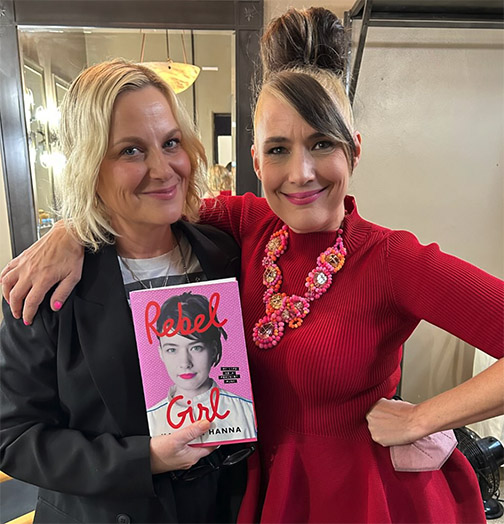
I admit that before I started it, I was reluctant to read Rebel Girl. I write frequently about the impact and legacy of Riot Grrrl in my own life and my readers often assume that I idolize Kathleen Hanna and treat her as the be-all and end-all voice of the Riot Grrrl movement. And for a time when I was younger, I did. However, Hanna’s self-awareness of this tension is what drew me into her book. I prefer this mature version of Hanna to the one I created in my head as a teenager: One who is reflective about her own growth, moments of short-sightedness, how trauma informed her decisions, and who demonstrates how, as artists, feminists, and people we can and must evolve.
Rebel Girl did leave me craving for more analysis about the current revival of Bikini Kill and Le Tigre, as well as more of Hanna’s reflections on aging, parenting, and balancing her tour schedule with managing a chronic illness. When Bikini Kill reunited in 2019 every Millennial and Gen-X indie rock man I knew sported their T-shirts, which would have been a radical feminist statement in the 1990s. I couldn’t help but wonder if nostalgia had rendered Hanna’s feminist rage more socially acceptable and “safe”. I would love to have read Hanna’s perspective on this. I also wanted to know more about how it feels to be playing songs written over 30 years ago to audiences now, in our current political context with the curtailing of reproductive and LGBTQ+ rights, as well as the band’s choice not to create any new material. I wondered, does playing these songs feel like feminist karaoke or reclaiming feminist rage and joy in middle age?
However, what Hanna has done in Rebel Girl is subtle and significant. Not “just” a rock and roll memoir, she’s rendered in prose what she so deftly does with her music: Turning highly personal experiences into art that informs and inspires her audience to take action in their own lives. She has written from a place of power and peace, made possible from her vantage point of midlife.
I’m no longer looking to Hanna for “answers” about how to age as a feminist, and understand now from the perspective of my forties that’s too much to put on anyone. With the publication of Rebel Girl I continue to be grateful for Hanna’s singular presence in the world, for speaking back to power, and singing and writing her truth.

